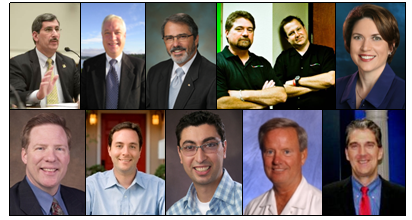I’m writing this post because I am often asked how to get started teaching Realtor clock hour classes. There are a million ways to answer this question. Do you want to know what the state requirements are? I can easily point you in the direction of Washington State’s required forms but the form won’t tell you how to get up and running. This form will tell you how to get yourself approved as an instructor. Getting up and running is a different question and that’s the question I will answer in this post. I have found that the best way to help people is to start at the end.
What’s your end game? Do you want to teach Realtor clock hour classes because you want to make a lot of money? Maybe you don’t care about the money because you have some other job where you already make pretty good money but instead want to use the classes as a way to get in front of Realtors so you can show them how awesome you are…so they will refer business to you. I have found the latter to be the most common reason why people want to begin teaching Realtor clock hour classes. But let’s talk about money first.
Money
There isn’t a whole lot of money in teaching live classes because…well…because there are so many vendors who are willing to teach low quality CE classes for free. There are also many large companies willing to send one of their full time employees to teach classes and at conventions for free. These instructors have full time jobs in management, sales, law, tech, etc., and teach classes or at conventions as a public relations maneuver for free, or for a very, very low fee. There’s a word for it. I call it sales-ucation. Big conventions only pull out big paychecks for the big name draw convention speakers. I’m assuming you’re not a big name convention keynote speaker if you’re reading this article so I’m going to tell a secret to the rest of you who are not sales-ucation speakers. There always IS a budget of some sort and they always WILL pay you something—if you ask.
Money, continued
Three Puzzle Pieces: Teaching, Writing, Warm Butts
If you are looking to teach Realtors as a career, AND you can write your own classes you’re on your way. The last piece of the puzzle will be—how are you going to get warm butts in chairs? You need to be able to do all three: Teach a kick-ass awesome class, constantly write new material, and have a marketing machine that delivers students into the classroom. Most people who want to teach….want to teach and that’s it. They want to walk into a classroom filled with students and walk out with a paycheck. If that’s all you want to do, your value to a real estate school is really, really low. But that’s okay, and there are real estate schools out there who may hire you but don’t expect to be paid much per hour or per class.
Vendors and The Numbers Game
Maybe you’re a vendor and…well, now don’t be offended if I call you a vendor. You might be thinking…..I’m a loan originator! I’m an appraiser! I’m an attorney! I’m an escrow officer! I hate to be the one to break the news to you but to a Realtor you’re just another vendor. Check your ego over there on the edge of the computer screen and don’t get offended if I call you a vendor. So vendors typically want to use the classroom as a way to grow their business. It’s a numbers game. You get in front of X number of Realtors each month will translate into X number of referrals which will translate into X number of leads which will translate into X number of deals which will translate into X number of closed transactions which, on average, will net you X number of before-tax dollars per month.
This is a great strategy and it is doomed to fail. I will hire no one to work at my company if all Realtors are to you is a dollar sign or a lead in a grand master plan. People aren’t objects. Students aren’t there to be used and even if you (please don’t) teach your class for free, the Realtors are still paying with their time. Their time is valuable and if all you are doing is a sales song and dance about how much you know and how awesome you are you will fail. This is what gives Realtor clock hour classes a bad name. Instructors are in the classroom to help people learn. They are not there to sell.
Magic is Mystery
So here’s the magic. As a vendor, I know you want deals. Everybody knows you want deals but if you go in there with your deal-wanting pants on, everybody’s going to know it. Instead, you need to approach teaching like a good book. Nobody goes right to the end of a good book to find out what happened. It’s a mystery. That’s what makes reading so enjoyable. If you really want to find success in the classroom, and by success I mean meeting your math goals in the previous paragraph, you need to let go of the outcome and instead focus on teaching an awesome, kick-ass class. A class better than any class they’ve ever had from your competitor. If you teach an awesome class, they will call you. You get to pick and choose who you want to work with. That’s right. At the end of a 4 hour class, you will know which Realtors you want to work with and which Realtors you don’t want to work with.
The Good News
Title insurance, mortgage lending, home inspections, escrow, all of these vendors have reputations for delivering “free” classes that are god-awful boring. That’s the good news. The bar for free vendor classes has been set terribly low. All you have to do is to teach even a marginally decent class and they’ll think it’s the best class they’ve ever taken.
So what’s the difference between a god-awful boring class and a kick-ass awesome class? A class where the instructor DOES NOT lecture.
It’s Hard But It’s Also Easy
The most difficult thing for most all clock hour instructors to get their heads wrapped around is that your mouth doesn’t have to be moving the entire time. Unless you attended a fancy prep school in your younger days, most of us attended school where the teacher did most of the talking and we think we have to do that to teach Realtors. That “teacher knows everything” archetype is embedded in our psyche. That’s not what adult learners want from their clock hour instructors. Adult learners want to get involved with their learning and that means you don’t have to be the one talking all the time. This is hard but also easy.
Step 1
The first step is to get into the right Instructor Development Workshop. Find out who is in charge of the workshop, who is teaching it, how long they’ve been teaching Realtor clock hour classes and how familiar they are with the facilitation model of adult learning. There are many IDWs out there. Some are cheaper than others, some are online. You do get what you pay for. Shop around and ask questions. Will the instructor answer all your questions about getting up and running during the workshop? Will the instructor help you fill out your state-required paperwork? Will the instructor give you the opportunity to try out the facilitation style of learning so you can get a feel for how it really works? Find the very, very best Realtor clock hour instructor you know who teaches a lot of interactive, fun classes and ask that person for a recommendation on where to take an IDW.
Step 2
The second step is to figure out if you’re a writer. If you don’t know how to write classes, don’t want to write classes, or don’t have time to write, then you’ll need to hook up with a real estate school that already has classes written that you can use but remember, no school is going to let you teach their material for free. There will always be a fee involved but you can let the students pay that fee if you don’t want to pay it. Real estate schools like mine can also help you write something completely unique and brand new. The class must be written to allow the instructor to give the students lots of things to do. The old-style class just gives the instructor lots of things to SAY. That is a recipe for a boring class. Just mailing a set of powerpoint slides to the Dept of Licensing won’t cut it. They want specific learning objectives. Real estate schools know how to write classes that the Dept of Licensing will approve.
Step 3
The third step is to figure out how you’re going to get warm butts in chairs. The easiest way vendors think they will meet this goal is to offer free classes. Unfortunately when you teach for free you are telling the Realtors what you have to teach them has no value. Unless YOU own the real estate school and you own your own courses, you OR the students will be paying another real estate school a fee to use their school and courses. Having your own school is also an option but you still haven’t solved the warm butts in chairs problem. So until then, make a list of possible marketing partners such as a local Association of Realtors or other vendors that also sell to Realtors. Whatever real estate school you’ll be working with can also help you with marketing ideas. You can have a great class and know how to teach an interactive class and then end up with nobody showing up. The marketing piece is crucial to meeting your goals. Marketing takes time and money. Just sending out a flyer to your email database of 500 Realtors might net you 5 students. If all you have is emails, you need BIG numbers to net 10 students. If you don’t even have a database of Realtors you’ll need to buy one or partner with someone who has one.
Other Options
In closing, teaching Realtor clock hour classes is a big time commitment. Not everyone can meet that time commitment, but they still want to attempt to meet their goals. Another option, without actually taking the time commitment needed to be an instructor, is to just sponsor a clock hour class through your local Realtor association. You bring in some healthy food like fruit and protein bars (can we ditch the donuts and muffins and bagels? All those simple carbs are increasing the LDL cholesterol levels of Realtors as I write this. Enough of that crap already) and then you have a few moments to address the audience. This is an option for you to create some face time but that’s all it is. Most vendors don’t stay for the whole class. Drop and go is the status quo and I’m sure the ROI is not very high. But it DOES make you feel like you’re accomplishing something if a “feeling” is the goal.
Think about your endgame and if you’ve decided to become an instructor, go back and read Step 1.





 RE Barcamp
RE Barcamp